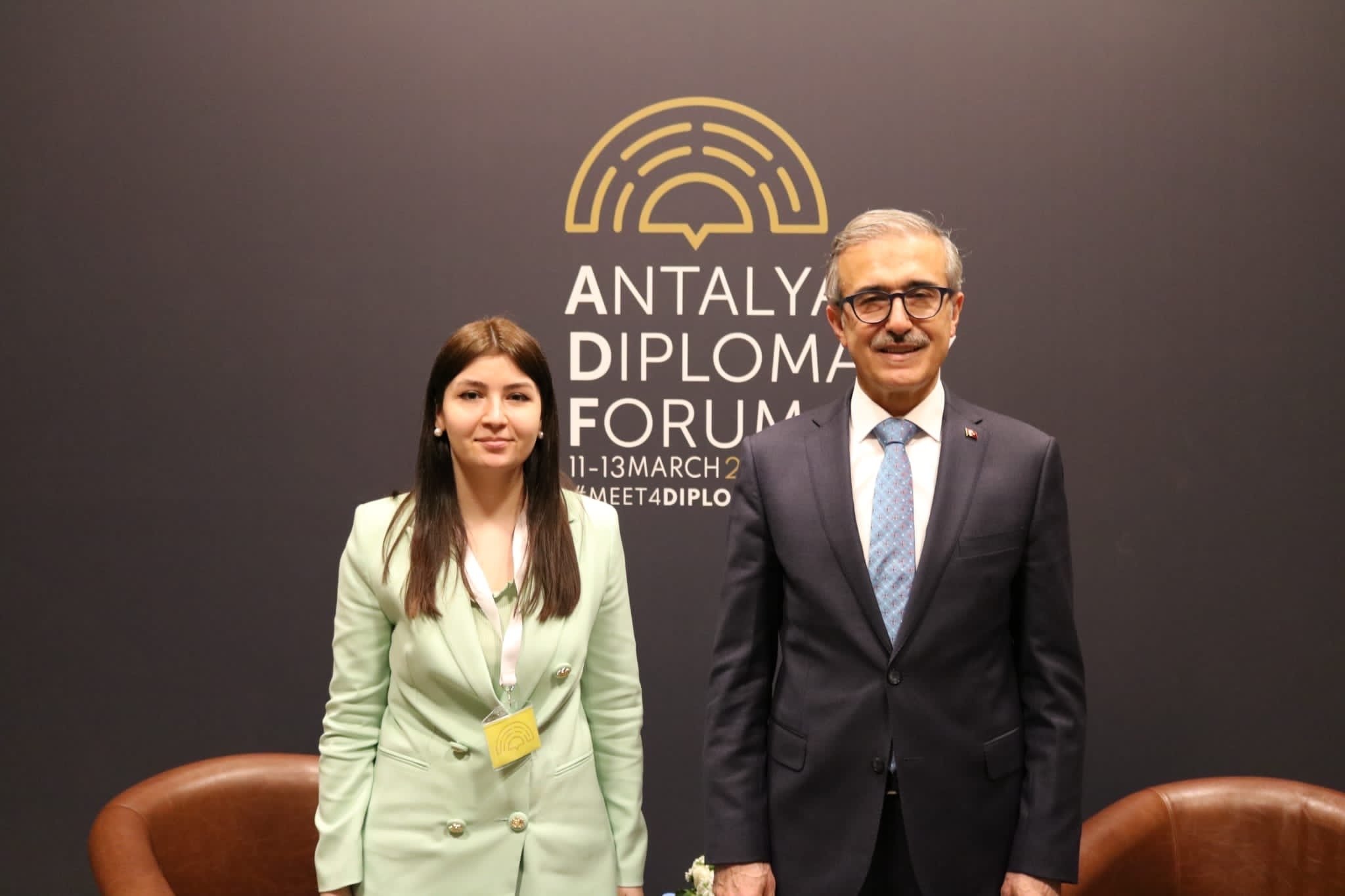© Turkuvaz Haberleşme ve Yayıncılık 2026
With the Ukraine-Russia war ongoing, the chairperson of the Presidency of Defense Industries (SSB), Ismail Demir, underlined that Turkey’s current focus is on establishing peace rather than defense projects.
Speaking to a group of journalists on the sidelines of the Antalya Diplomacy Forum, Demir said: "It is not sensible to speak of projects while a matter of life or death is going on in Ukraine. Our hope is that a cease-fire and peace will be established as soon as possible. When things calm down, we will speak about the future of projects."
In addition to its aging Soviet-made arsenal, Ukraine has received large shipments of Western weapons, including United States-made Javelin anti-tank missiles and shoulder-launched Stinger anti-aircraft missiles, to defend itself against the Russian aggression.
The Ukrainian military also has used Turkish Bayraktar drones. It released a video showing a Ukrainian Bayraktar being deployed against a Russian convoy that received wide media coverage internationally.
"It is not very meaningful to bring up the issue of armed drones regarding Ukraine because the products we have provided have become the property of that country. Countries are free in using these," Demir underlined, saying that Turkey’s policy is not to add fuel to the fire. "So far, we have similarly seen the weapons of many countries in the hands of our adversaries," he added.
NATO member Turkey, which shares a maritime border with Russia and Ukraine and has good ties with both, has called the invasion unacceptable but avoided the harsher rhetoric of other alliance members and opposes their use of sanctions.
Turkey cooperates closely with Russia in energy, trade and defense. The country has also sold Bayraktar TB2 drones to Kyiv and signed a deal to co-produce more during a visit there last month by President Recep Tayyip Erdoğan. Turkey also closed its straits linking the Mediterranean and Black Seas to all military traffic under a 1936 pact, allowing it to limit passage to some Russian warships only.
The engine for Turkey’s domestic main battle tank (MBT) Altay has arrived from South Korea, Demir also noted.
"The tests of the engine’s power systems are currently underway. We are waiting for May. We will see the prototype of the tank with this engine," he added, indicating that there is no regression.

New cooperations
On another note, Demir also commented on Turkey’s normalization with regional countries, stressing that Turkey and Gulf countries have the potential to cooperate or even join productions in the area of defense.
Underlining that Turkey did not initiate the tensions in relations, Demir said that the country's products and capabilities are now appreciated and widely known. He said developments on cooperation with the Gulf are expected. Regarding the recent thaw in ties with Israel, Demir said that it is early in the process to discuss defense cooperation with Tel Aviv. "We are not a country that imports, that is dependent. This is the case for Israel as it is for other countries. We are especially decisive on zeroing out our dependency on strategic products," he explained.
With converging interests driving regional power shifts, Turkey has recently started to normalize its relations with several Gulf and regional countries including Egypt, Saudi Arabia, the United Arab Emirates (UAE), Armenia and Israel.
"Steps have been taken on mutually listening to each other and understanding each other. It is a good thing that dialogue has started. We believe that the F-35 issue is closed and we have to manage on our own," Demir said.
Ankara had initially ordered more than 100 F-35 jets, made by Lockheed Martin Corp., but the United States removed Turkey from the program in 2019 after it acquired Russian S-400 missile defense systems.
Turkey has called the move unjust and demanded reimbursement for its $1.4 billion payment.
Last year, Ankara had reportedly made a request to Washington to buy 40 Lockheed Martin-made F-16s and nearly 80 modernization kits for its existing warplanes.
Turkey’s purchase of the S-400s also triggered U.S. sanctions. In December 2020, Washington blacklisted Demir and three other employees.
Erdoğan recently told his American counterpart, Joe Biden, in a phone call on Thursday that the time has come to lift the "unjust" sanctions on Turkey’s defense industry.
